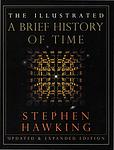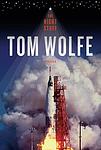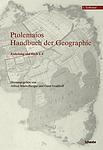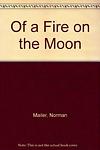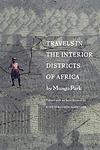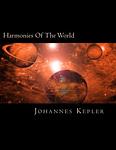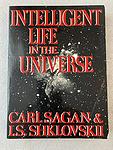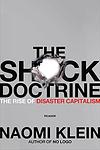The Greatest "Physical Sciences" Books of All Time
Click to learn how this list is calculated.
This list represents a comprehensive and trusted collection of the greatest books. Developed through a specialized algorithm, it brings together 284 'best of' book lists to form a definitive guide to the world's most acclaimed books. For those interested in how these books are chosen, additional details can be found on the rankings page.
Genres
The "Physical Sciences" category encompasses a broad range of books that delve into the non-living systems of the natural world, offering insights into the fundamental principles and phenomena that govern the universe. This category includes disciplines such as physics, chemistry, astronomy, geology, and meteorology, among others. Books within this genre may cover topics from the subatomic particles and forces that constitute the fabric of space-time to the vast cosmic structures of galaxies and the universe at large. They can also explore the chemical reactions that underpin the behavior of matter, the geological processes that shape our planet, and the atmospheric dynamics that influence our weather and climate. Whether aimed at students, professionals, or enthusiasts, these books serve as a gateway to understanding the laws of nature and the scientific methodologies used to uncover them, often combining theoretical concepts with practical applications and the latest research findings.
Countries
Date Range
Reading Statistics
Click the button below to see how many of these books you've read!
Download
If you're interested in downloading this list as a CSV file for use in a spreadsheet application, you can easily do so by clicking the button below. Please note that to ensure a manageable file size and faster download, the CSV will include details for only the first 500 books.
Download-
1. Silent Spring by Rachel Carson
This influential environmental science book presents a detailed and passionate argument against the overuse of pesticides in the mid-20th century. The author meticulously describes the harmful effects of these chemicals on the environment, particularly on birds, hence the metaphor of a 'silent spring' without bird song. The book played a significant role in advancing the global environmental movement and led to a nationwide ban on DDT and other pesticides in the United States.
-
2. A Brief History of Time by Stephen Hawking
A Brief History of Time is a popular science book that explores a broad range of topics in cosmology, including the Big Bang, black holes, light cones and superstring theory. The author does not shy away from complex theories and concepts, but explains them in a way that is accessible to non-scientific readers. The book also discusses the possibility of time travel and the boundaries of scientific knowledge. Throughout, the author emphasizes the ongoing quest for a unifying theory that can combine quantum mechanics and general relativity into one all-encompassing, coherent theoretical framework.
-
3. The Right Stuff by Tom Wolfe
"The Right Stuff" is a non-fiction novel that explores the lives and experiences of the first Project Mercury astronauts selected for the NASA space program in the 1960s. The book delves into the personal and professional lives of these astronauts, highlighting their courage, competitiveness, and the immense pressure they faced. It also provides a detailed account of the space race between the United States and the Soviet Union during the Cold War era.
-
4. Dialogue Concerning the Two Chief World Systems by Galileo
This scientific work presents a series of discussions between three characters, each representing a different perspective on the cosmological theories of the time. Throughout the dialogue, the characters debate the merits of the Ptolemaic geocentric system, which asserts that the Earth is the center of the universe, and the Copernican heliocentric system, which proposes that the Sun is the center. The author uses these discussions to subtly argue in favor of the Copernican system, challenging the traditional religious and scientific beliefs of his time.
-
5. The Rings of Saturn by W. G. Sebald
"The Rings of Saturn" is a richly detailed travelogue that follows the narrator's journey along the coast of Suffolk, England. The narrative weaves together history, literature, and personal anecdotes, exploring topics as diverse as the decline of the herring industry, the horrors of colonialism in the Congo, and the life of philosopher Sir Thomas Browne. The book is characterized by its melancholic tone, its digressive style, and its meditative reflections on memory, time, and decay.
-
6. Extinction by Thomas Bernhard
"Extinction" is a novel that explores the dark and complex themes of family, identity, and history through the eyes of its protagonist, a professor living in Rome. When he receives news of the deaths of his parents and brother in a car accident, he is forced to confront his past and his Austrian heritage. The narrative delves into his thoughts and feelings, his criticisms of his family and society, and his philosophical musings on life and death, all while he prepares to return to his family's estate for the funeral. The novel is renowned for its dense, stream-of-consciousness style and its unflinching examination of the human condition.
-
7. On the Revolutions of the Heavenly Spheres by Nicolaus Copernicus
This book presents the revolutionary astronomical model that places the sun, rather than the earth, at the center of the universe. The author challenges the geocentric model of the cosmos, which had been widely accepted since the time of Aristotle, and instead proposes a heliocentric system, where the planets orbit the sun. This revolutionary idea transformed the way we understand our place in the universe, paving the way for modern astronomy and science.
-
8. Silk by Alessandro Baricco
"Silk" is a historical fiction novel that tells the story of a 19th-century French silkworm merchant who travels to Japan for business. During his travels, he becomes enamored with a mysterious woman. His unrequited love for her haunts him for the rest of his life, even as he returns to France and continues his life there. The novel explores themes of love, longing, and the profound impact that brief encounters can have on one's life.
-
9. The Sixth Extinction: An Unnatural History by Elizabeth Kolbert
The book explores the concept of the sixth extinction, suggesting that we are currently in the midst of it due to human activity. By examining previous mass extinctions and the current rapid loss of species, the author argues that humans are causing a mass extinction event through climate change, habitat destruction, and spreading of non-native species. The book offers a sobering look at the impact of human behavior on the natural world, emphasizing the urgency of addressing these environmental issues.
-
10. One Two Three . . . Infinity: Facts and Speculations of Science by George Gamow
This book explores complex scientific concepts and theories in a manner that is accessible to the general reader. It discusses a wide range of topics, from atoms and molecules, through the principles of mechanics, to elements of probability theory. The book also ventures into the realms of modern physics, discussing quantum theory and relativity, as well as exploring the universe, discussing its size, structure and the theory of its origin. In addition, it also speculates about the possibilities of other dimensions and time travel.
-
11. The Perfect Storm by Sebastian Junger
This non-fiction book narrates the story of the Andrea Gail, a commercial fishing vessel that was lost at sea during the "Perfect Storm" of 1991. The author combines meteorological science, history, and personal accounts to paint a vivid picture of the harrowing ordeal faced by these six fishermen. The book also explores the dangerous profession of deep-sea fishing and the tight-knit communities that are affected by such tragedies.
-
12. Rising Tide by John Barry
"Rising Tide" is a historical account that explores the impact of the Great Mississippi Flood of 1927 on American society. The narrative details the catastrophic event and the subsequent political and social changes that occurred, including the shift in African American voting patterns from the Republican to the Democratic party. The book also delves into the engineering efforts to control the Mississippi River and the environmental consequences of such efforts.
-
13. City by Clifford D. Simak
"City" by Clifford D. Simak is a collection of interconnected short stories that explore the future of humanity and the evolution of civilization. Set in a distant future where humans have abandoned Earth and left it to robots and intelligent dogs, the book delves into themes of loneliness, the nature of humanity, and the possibility of coexistence between different species. Through a series of thought-provoking narratives, Simak paints a vivid picture of a world where technology and nature intertwine, challenging readers to contemplate the essence of what it means to be human.
-
14. Geography by Ptolemy
"Geography" is a seminal work in the field of geography and cartography, written by a renowned ancient Greek scholar. The book provides comprehensive details about the world as known during the Roman Empire. It contains a wealth of information about various countries, cities, landmarks, and geographical features, along with instructions on how to create maps. The author also introduces the concept of longitude and latitude, making this work a significant contribution to the field of geography.
-
15. A Fire on the Moon by Norman Mailer
"A Fire on the Moon" is a detailed account of the Apollo 11 mission, which resulted in the first man landing on the moon. The book offers an in-depth exploration of the technical aspects of the mission, the astronauts involved, and the political and cultural implications of the historic event. It also delves into the author's personal reflections and philosophical musings on space exploration, technology, and the human condition.
-
16. Travels in the Interior Districts of Africa by Mungo Park
"Travels in the Interior Districts of Africa" is a detailed account of the author's exploration into the heart of Africa at the end of the 18th century. The narrative provides an in-depth look at the geography, flora, fauna, and local cultures of the region at the time. The author, a Scottish explorer, recounts his journey along the Niger River, his encounters with different African tribes, his experiences of being captured and enslaved, and his eventual escape. The book offers a unique perspective on African society and the European perception of Africa during this period.
-
17. The Harmony of the Worlds by Johannes Kepler
"The Harmony of the Worlds" is a scientific text that presents the author's innovative and groundbreaking theories on planetary motion. The author proposes that the movements of the planets in our solar system are not random, but rather follow precise mathematical relationships, likening these celestial patterns to harmonious musical notes. The book is a fundamental work in the history of astronomy, and it has had a profound influence on our understanding of the universe and its laws.
-
18. The Diversity of Life by Edward O. Wilson
This book is a comprehensive exploration of the variety and richness of life on Earth, written by a renowned biologist. It delves into the concept of biodiversity, examining its importance and the threats it faces. The author discusses the evolution and extinction of species, the complex interactions within ecosystems, and human impact on the environment. The book is a passionate plea for the conservation of the planet's diverse species and ecosystems.
-
19. Intelligent Life in the Universe by Carl Sagan
"Intelligent Life in the Universe" is a comprehensive exploration into the possibility of extraterrestrial life. The book delves into a variety of scientific disciplines including astronomy, biology, chemistry, and physics to provide a detailed examination of the conditions necessary for life to exist. The author further investigates the potential for intelligent life on other planets, potential methods of communication with these beings, and the implications such discoveries would have on our understanding of the universe.
-
20. Coming of Age in the Milky Way by Timothy Ferris
This book provides a comprehensive history of cosmology, from the ancient Greeks to modern astrophysicists. It explores the evolution of scientific thought and discoveries that have shaped our understanding of the universe. The narrative chronicles the shift from geocentric to heliocentric models, the development of quantum mechanics, and the advent of theories such as relativity and string theory. The book also discusses the philosophical and cultural implications of these scientific advancements.
-
21. Cadillac Desert by Marc Reisner
"Cadillac Desert" is a detailed exploration of the water crisis in the American West. The book delves into the history, politics, and environmental impact of water development in this region, highlighting the role of government policies and engineering projects. It also discusses the unsustainable use of water resources, the impact on local ecosystems, and the potential consequences of continued mismanagement, providing a comprehensive overview of a critical environmental issue.
-
22. Pulphead: Essays by John Jeremiah Sullivan
"Pulphead: Essays" is a collection of non-fiction essays that explore various aspects of American culture, history, and personal experiences. The author takes the reader on a journey through a wide range of topics, from popular music and television to historical events and personal anecdotes. The essays are marked by their humor, insight, and the author's unique perspective, offering a thought-provoking and often surprising look at the American experience.
-
23. The Shock Doctrine: The Rise of Disaster Capitalism by Naomi Klein
This book explores the concept of "disaster capitalism", the idea that global capitalism thrives on disaster and chaos. The author argues that free market policies are often pushed through while countries are reeling from wars, natural disasters, or economic crises. She provides a historical analysis of these events, from Chile in the 1970s, to Russia in the 1990s, to the war in Iraq, demonstrating how governments and corporations exploit these periods of shock to implement economic reforms that would otherwise be rejected.
-
24. Zeitoun by Dave Eggers
The book is a non-fiction account of a Syrian-American contractor named Zeitoun who decides to stay in New Orleans during Hurricane Katrina. Despite the chaos, he paddles around the city in a canoe, helping those he can. However, he is arrested and accused of looting, leading to a harrowing experience in prison. The narrative explores themes of family, survival, and the breakdown of civil liberties in times of crisis.
-
25. The Influence of Sea Power Upon History, 1660-1783 by Alfred Thayer Mahan
This book is a comprehensive examination of the importance of naval warfare in the period between 1660 and 1783. The author argues that sea power was a crucial factor in determining the outcomes of historical events during this period, including the rise and fall of empires and the outcomes of wars. The book provides detailed analyses of major naval battles, strategies, and technologies, as well as the economic and political factors that influenced the development of naval power. It is considered a seminal work in the field of naval history and strategy.
Reading Statistics
Click the button below to see how many of these books you've read!
Download
If you're interested in downloading this list as a CSV file for use in a spreadsheet application, you can easily do so by clicking the button below. Please note that to ensure a manageable file size and faster download, the CSV will include details for only the first 500 books.
Download
